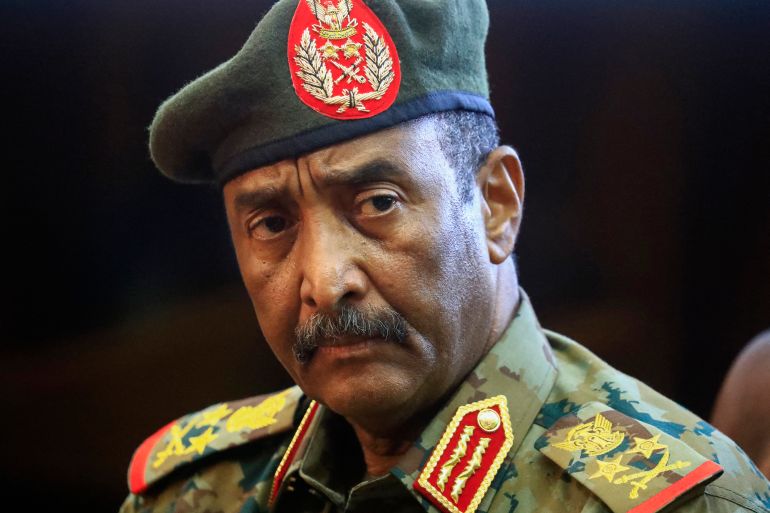Early Life and Military Ascent
History often favors those who can adapt to shifting tides, and general Abdel Fattah al-Burhan of Sudan has proven to be one such figure. Born in 1960 in Sudan’s River Nile state, his early years were marked by a trajectory common among military elites—education at Sudan’s military academy followed by advanced training in Egypt and Jordan. His military career saw him steadily rise through the ranks, securing his place within the inner circles of Sudan’s armed forces.

During the rule of Omar al-Bashir, Burhan played a key role in overseeing Sudan’s military operations, particularly in Darfur, where he gained experience in counterinsurgency tactics. While he was not among the most public faces of Bashir’s regime, he was an integral part of the security apparatus that upheld the regime’s authority.
The Fall of Omar Al-Bashir and Abdel Fattah al-Burhan’s Rise
When the Sudanese revolution erupted in 2018, calling for an end to decades of autocratic rule, Burhan positioned himself strategically. As protests gained momentum, it became clear that Bashir’s grip on power was slipping. In April 2019, Burhan, along with other high-ranking military officials, orchestrated the ousting of Bashir, presenting himself as a leader capable of guiding Sudan through a transitional period.
Initially, general Abdel Fattah al-Burhan of Sudan took a backseat, allowing his deputy, Mohamed Hamdan Dagalo (known as Hemedti), to handle much of the political maneuvering. However, as chairman of the Sovereign Council—a body tasked with overseeing Sudan’s transition to civilian rule—Burhan was at the heart of the power struggle between the military and civilian forces vying for control over Sudan’s future.
The 2021 Sudan Coup and Consolidation of Power
Two years into the transition, tensions between civilian leaders and the military escalated. In October 2021, Burhan led a military coup, dissolving the civilian government and assuming full control. He justified the move as a necessary intervention to prevent political instability, yet it was widely condemned as a step backward for Sudan’s democratic aspirations.
Despite promises to restore civilian governance, Burhan’s rule has been marked by crackdowns on protesters, delays in political negotiations, and an increasingly fragile economic situation. His leadership has relied on a delicate balance—keeping the military’s factions united while fending off internal and external pressures to relinquish power.
Sudan: A Nation at a Crossroads
Burhan’s legacy is still being written. Will he transition into a statesman who oversees Sudan’s path to democracy, or will he entrench himself as yet another military strongman? His fate is tied to the broader political and social forces shaping Sudan. As resistance movements continue to challenge military rule, and as international actors push for a resolution, Burhan’s ability to navigate this turbulent period will determine his place in history.
For now, he remains a figure emblematic of Sudan’s struggles—one who came to power amid revolution but risks being remembered as the man who stalled its progress.
